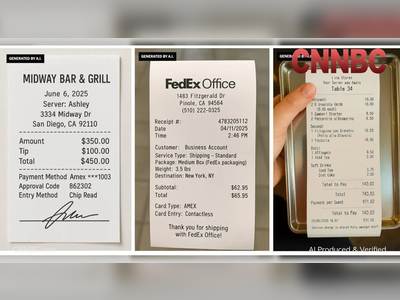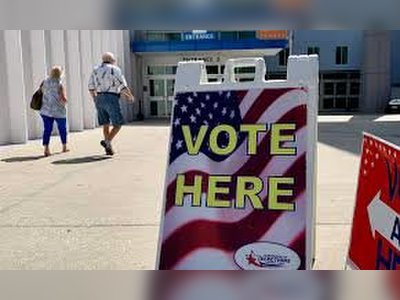House Democrats Demand SNAP Continuity Amid Shutdown and Trump Administration Inaction
More than two hundred House Democrats ask USDA to deploy contingency funds to ensure food-stamp benefits for November
More than two hundred Democrats in the U.S. House of Representatives have formally urged the U.S. Department of Agriculture (USDA) to ensure that Supplemental Nutrition Assistance Program (SNAP) benefits continue for November, despite the ongoing federal shutdown.
In a letter addressed to Agriculture Secretary Brooke Rollins, the lawmakers pressed the agency to draw on the roughly five billion-dollar contingency reserve created for exactly such a scenario, and to use statutory transfer authority to move funds from other nutrition programs if needed.
Representative Terri Sewell of Alabama, speaking as part of the coalition, emphasised that in her district nearly a quarter of households rely on SNAP “to keep food on the table.” She warned that the failure to act would force families to choose between meals, rent and medicine—noting that Congress itself approved the contingency reserve for this kind of crisis.
USDA officials have meanwhile stated publicly that funding for SNAP will not be available beginning November 1, warning that the contingency fund alone will not cover the full cost of benefits in a month when roughly 42 million Americans depend on the programme.
The department cited both the funding stalemate in Congress and its decision not to tap the reserve or transfer authority as the reason states were being instructed to hold benefit files until further notice.
State agencies and local governments are starting to respond.
The U.S. Conference of Mayors has also asked the USDA to act immediately, warning of “devastating impacts” on municipal economies and low-income families.
Some states are signalling they may attempt to step in temporarily, though they cannot be reimbursed without federal approval.
With tens of millions of beneficiaries facing a potential cutoff of aid, lawmakers led by Sewell argued the priority must be, first and foremost, preserving access to nutrition for vulnerable Americans.
The letter to Secretary Rollins underscored that failure to act would be a “gross dereliction” of duty, and urged the agency to issue clear guidance to states on benefit issuance without further delay.
In a letter addressed to Agriculture Secretary Brooke Rollins, the lawmakers pressed the agency to draw on the roughly five billion-dollar contingency reserve created for exactly such a scenario, and to use statutory transfer authority to move funds from other nutrition programs if needed.
Representative Terri Sewell of Alabama, speaking as part of the coalition, emphasised that in her district nearly a quarter of households rely on SNAP “to keep food on the table.” She warned that the failure to act would force families to choose between meals, rent and medicine—noting that Congress itself approved the contingency reserve for this kind of crisis.
USDA officials have meanwhile stated publicly that funding for SNAP will not be available beginning November 1, warning that the contingency fund alone will not cover the full cost of benefits in a month when roughly 42 million Americans depend on the programme.
The department cited both the funding stalemate in Congress and its decision not to tap the reserve or transfer authority as the reason states were being instructed to hold benefit files until further notice.
State agencies and local governments are starting to respond.
The U.S. Conference of Mayors has also asked the USDA to act immediately, warning of “devastating impacts” on municipal economies and low-income families.
Some states are signalling they may attempt to step in temporarily, though they cannot be reimbursed without federal approval.
With tens of millions of beneficiaries facing a potential cutoff of aid, lawmakers led by Sewell argued the priority must be, first and foremost, preserving access to nutrition for vulnerable Americans.
The letter to Secretary Rollins underscored that failure to act would be a “gross dereliction” of duty, and urged the agency to issue clear guidance to states on benefit issuance without further delay.











